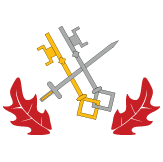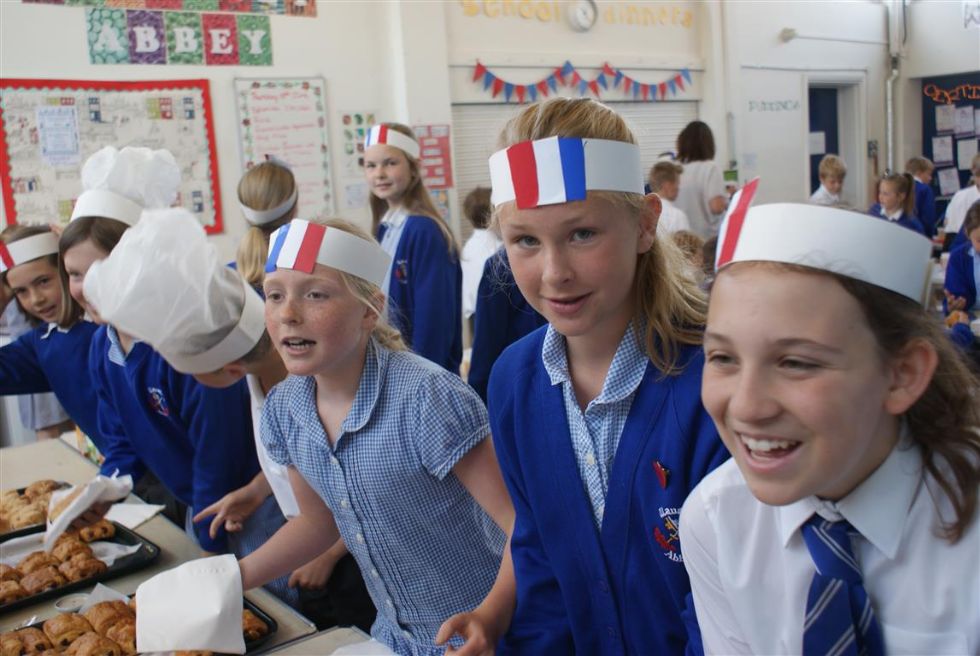Foreign Languages
French in School
All things are possible for one who believes – Mark 9:23
At Waverley Abbey we are passionate about encouraging our pupils to become empathetic global citizens by embracing other languages and cultures, preparing them for their future roles in our international community. In learning French with the support of a specialist teacher, all children are encouraged to creatively experiment with the language, aspiring to deepen their curiosity regarding its complexities and challenge themselves to develop their linguistic confidence and understanding. In addition, pupils are given opportunities to celebrate the diverse languages and cultures in our school community, providing greater intercultural understanding, respect for others and an appreciation of similarities and differences.
Curriculum Intent:
Our intent is to provide pupils with an opportunity to build linguistic confidence and understanding and to experiment with and be curious about learning French. It is our intention to nurture a joy for language learning and to equip pupils with the language knowledge, skills and understanding to allow them to successfully continue future language study as independent learners.
The French curriculum is designed to deliver the requirements of the programme of study for foreign languages and focuses on the successful teaching of the three pillars of language progression- vocabulary, phonics and grammar. Content is selected to motivate and interest pupils and is relevant for their age group. Where possible, topics are cross-curricular. Vocabulary is introduced in small quantities and revisited regularly over the four years of Key Stage 2, ensuring pupils have frequent exposure to the four key concepts of listening, speaking, reading and writing. More simple phonics are taught explicitly in Year 3 and subsequently revisited and taught in more complexity as the years progress. They are the key to understanding how to read, write and pronounce independently. Grammar is taught discretely to all year groups, increasing in complexity throughout the key stage. Language is regularly revisited, and prior learning is frequently reintroduced alongside new learning. Children are also provided with ample opportunities to further their intercultural understanding through use of a wide range of resources.
Curriculum Implementation:
Our Modern Languages curriculum is implemented through French lessons, once fortnightly, from thoroughly devised long, medium- and short-term plans. Planning details when to teach vocabulary, grammar and phonics. All content is introduced through a topic, and it is ensured that general vocabulary such as numbers, colours, conjunctions and opinions are revisited in progressive complexity across the key stage. Ample opportunity is provided with a retrieval activity each lesson. A variety of resources is used to meet the successful delivery of the programme of study. A wide range of stories, songs, poems and rhymes are also used regularly. All lessons are differentiated with support resources for SEND children and other children with higher need. Challenges and opportunities for learning at greater depth are provided every lesson.
French is taught to all children in hourly slots every two weeks by a specialist French teacher, ensuring continuity and progression as the children move up through the school. The emphasis in lessons is on making language learning fun and accessible whilst ensuring children are equipped with the appropriate skills to develop their use of the four skills of listening, speaking, reading and writing. Pupils have fun using role play, drama, language games and music to further develop their knowledge, confidence and understanding.
In addition to lessons, languages are important outside the classroom too:
- Each year the children enjoy organising and running a French style café which allows them to practise speaking in French with real purpose.
- The children also have the opportunity to watch a French theatre company perform in school which enables them to listen to native French speakers and help further their understanding of the spoken language.
Curriculum Impact:
By the end of the key stage, pupils will have a sound knowledge of appropriate vocabulary, grammar and phonics in French. They will be confident in the skills they have acquired to allow them to creatively manipulate language for their own purpose. Pupils will be able to speak and read aloud with good pronunciation and listen for gist or detail. They will be able to understand how to speak and write sentences using a range of vocabulary with an understanding of basic grammar concepts. Pupils will have an understanding and awareness of other cultures and will be able to enjoy simple songs, rhymes, stories and poems in French. They will have gained skills necessary for successful future language study.
How to further help and support your child in learning foreign languages at home.
There are many apps available to support language learning at home. The following are free and can be used on any device.
- Duolingo
- Memrise
The following websites are great for practising vocabulary:
French Games net https://www.french-games.net/
BBC Bitesize https://www.bbc.co.uk/bitesize/subjects/z39d7ty
Wordwall https://wordwall.net/en-gb/community/french/games
It has lots of content – search for the topic you wish to practise.
If you would like to find out more about the curriculum, please make an appointment to see your child's teacher, who will be happy to discuss this with you. You can do this by contacting school through the office via - info@waverley-abbey.surrey.sch.uk

